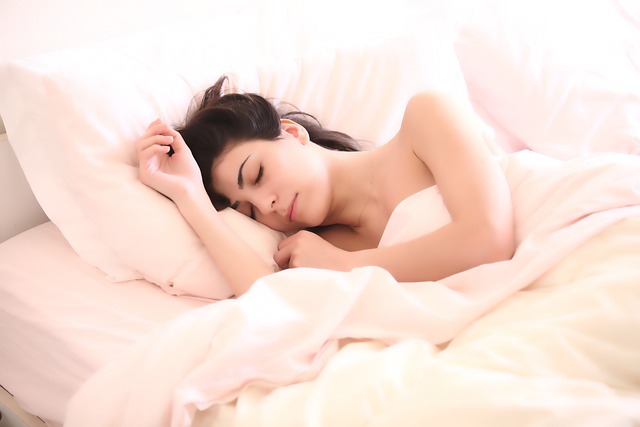A healthy sleep pattern directly affects the health of your body and mind. If you don’t get enough sleep, it could be a major drain on your energy levels and productivity, your emotional well-being as well as your weight. Many of us wake up and toss trying to get enough sleep.
To get a restful night’s sleep could seem like a difficult target when you’re awake around 3 a.m. But you’ve got better control on the quality of sleep you think. The way you feel throughout your day time is often influenced by the quality of your rest at night, the solution to sleep issues is often located in your routine.
Poor habits during the day and lifestyle choices could cause you tossed and turned at night , which can negatively affect your mood, your brain and heart health, your immune system and vitality, creativity, and weight. If you try these tips to help you sleep better, you will be able to enjoy more restful sleep enhance your health and boost your mood and thinking throughout the day.
Tips 1: Be in tune with your body’s natural cycle of sleep and wake.
In sync to your body’s natural sleep-wake rhythm, or the circadian rhythm is among the most crucial strategies to getting better sleep. If you follow an established sleep-wake routine and you’ll be more energized and refreshed when you’re sleeping for the same length of time at different times even if you change your sleeping schedule by just a few hours.
Try to sleep at the same time and wake up in the exact same hour each throughout the day. This helps set your body’s internal clock, and enhance sleeping quality. Pick a time to go to bed that you aren’t usually exhausted, so that you don’t sway and turn. If you’re sleeping well it is recommended that you awake naturally and without the need for an alarm. If you’re in need of the aid of an alarm, then you may require a later sleep time.
Do not stay up late, even at weekend.
The more your routines for sleeping on weekends and during the week and the more severe the jetlag symptoms you’ll feel. If you’re required to recuperate from the late night, opt to take a nap during the day instead of sleeping in. This lets you repay your debt from sleep without disrupting your normal sleep-wake pattern.
Take care when you nap.
While napping is an effective method of regaining the lack of sleep, if you are having trouble falling into a deep sleep through the night, naps can increase the severity of your problems. Limit your nap time to 15 to 20 minutes during the early afternoon.
Get your day started with a nutritious meal.
Among lots of other health benefits, having an adequate breakfast will help you to synchronize your biological clock and let your body know it’s time to get up and start your day. By skipping breakfast, in contrast may cause a delay in your blood sugar levels which can reduce your energy and cause stress as well as disrupting your sleep.
Combat drowsiness after dinner.
If you get tired before bedtime take a break from the couch and do something stimulating, like cleaning the dishes call a friend or getting your clothes prepared for the day ahead. If you fall into the sleepiness, you could awake later in the night and experience difficulties getting back to sleep.
Tip 2 Control the amount of light you are exposed to
Melatonin is a natural hormone that’s controlled by light exposure , which helps regulate the cycle of sleep and wake. The brain releases more melatonin at night, which makes you feel sleepy. However, it decreases when it’s light, which makes your more awake. But, many elements of modern living could alter the body’s production of melatonin , and change the rhythm of your circadian cycle. Here’s how you can influence your exposure to light
During the day
Get yourself exposed to the bright sun early in the daytime. The closer to the time you wake up the more favorable. Drink your coffee outdoors like this or have breakfast in front of the window that is sunny. The sun’s rays will aid in waking up.
You should spend more time outdoors in the daylight hours. Take your work breaks outside in sunshine and exercise outdoors or take your dog for a walk during the day instead late at night.
Let as much light from the sun into your workplace or your home as is possible. Keep curtains and blinds up during the day. Also, make an effort to relocate your desk closer to the windows.
If you need to, make use of an energy box that is light. This simulates sunshine and is particularly useful on cold winter days.
At the night
Avoid screens that are bright within 1-2 hours before your nighttime. The blue light produced by your smartphone, tablet or computer is particularly disruptive. It is possible to minimize the effect by making use of devices that have smaller screens, turning the brightness down, or by using software to alter the light, like f.lux.
Don’t watch late-night TV. Not just does the light from television block melatonin production however, many shows can be stimulating, rather than relaxing. Listen to audio books or music instead.
Do not read on devices that are backlit. Tablets that are backlit can be less disruptive than E-readers who do not have their own source of light.
When it’s time for go to bed, ensure that your area remains dim. Use heavy curtains or shades to block out light from windows, or use using a sleeping mask. Consider also covering the electronics which emit light.
Make sure the lights are off when you awake at evening. If you need an extra light source to move in a safe manner, consider setting up a dim light in the bathroom or hall or using a tiny flashlight. This can help you to get into sleep.

